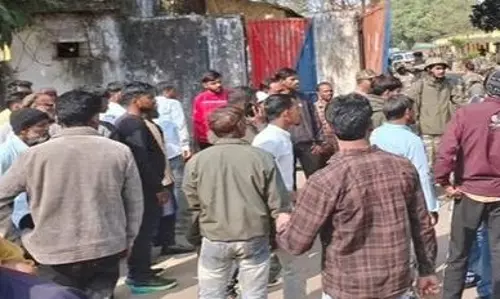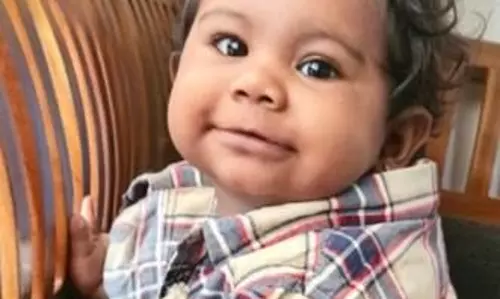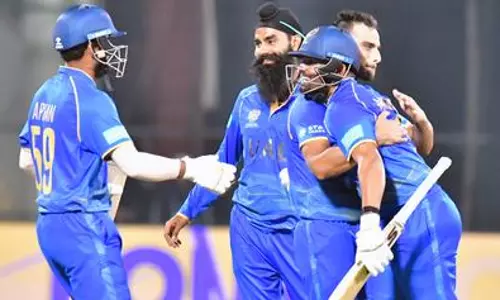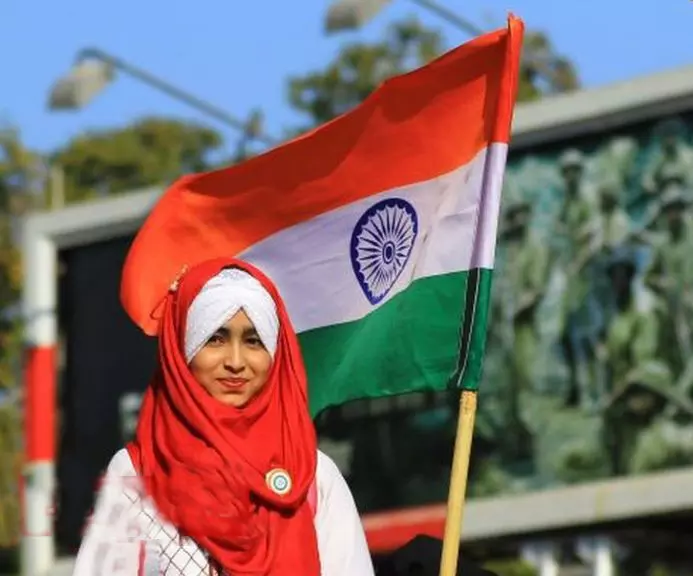
Where the Hijab verdict went wrong: Revisiting Judgement
text_fieldsMany have raised contentions against the Karnataka High Court's exercing of discretion to determine what is essential in religions in a judgement over Hijab in the state. The court has upheld a state government circular by which all kinds of hijab have been banned in the classrooms. In the 129-page judgement, the court has made references to written material to justify its hijab banning verdict, where it reached the finding that hijab wearing is not an essential practice in Islam for women.
It would be bizarre for the legal community as well as the common people when pondering over the references the court has cited in the judgement, where the court has materials, which have been criticised for lacking the legal backing and authenticity by legal experts as per a report published in The News Minute.
The judgement has widely quoted Quranic verses in translation, previous judgements and different practices, besides a term paper on the subject of a history student. The 2014 term paper titled 'Veiled Women: Hijab, Religion, and Cultural Practice,' submitted by Sara Slininger at the Eastern Illinois University College, has been quoted by the court, but there was no reason for the court to quote such a term paper of a student in a crucial judgement, nor were there explanations on the credentials, authenticity, and legal backing of the materials.
According to a TNN report, the paper which the court has quoted in the judgement was an assignment for Sara on Early Islamic History during in the final semester of her course. However, nowhere in Sara's quotations which have been cited by the court does it say hijab wearing is not an essential part for Muslim women in Islam. Instead, it implies that the matter of hijab wearing is a complex one which is not solely confined to Islam. It is obvious that many religions across the world mandate certain forms of veiling for women as a practice. In India, too, there are different sects in the Hindu community among whom women veiling themselves is a practice.
Given the different traditions of veiling, Sara makes a point that it is the pressure on women that makes them appear themselves in veil in some cases, while others veil themselves by choice. However, the conclusion which the court has reached referring to Sara's paper was contrary to what the paper had really intended.
Asserting the importance of rituals and practices in religions, Faizan Mustafa, the Vice Chancellor of NALSAR Law University, wrote in The Indian Express that "religious freedom is premised on the belief that every human being has the inherent dignity to explore his or her conscience and pursue the truth." This religious freedom both as individual right and fundamental rights is guaranteed by the Indian Constitution under the Article 25 and 26. And in Article 26, essentiality of religious practices is validated with the rights to expression on condition that it shall not offend or deprive others' fundamental rights.
In this context, hijab wearing as a fundamental right and as an individual right to express one's religious practice does not offend or rob others fundamental rights, and always shall be guaranteed by law.
When the court uses references to a reach a conclusion in sensitive cases, which are complex in nature and where religion is involved, wide references of authentic scriptures are to be presented for the sake of its validity. Why this is so important in this case is that the court unanimously decided the Quran translation by Abdullah Yusuf Ali as the only authentic source to judge on a religious practice.
Throughout the judgement, the court extensively quoted Abdullah Yusuf Ali for the only reason that the court found to have speculative and generalising mind and found his view of Quranic verses in proper perspective. "The speculative and generalising mind of this author views the verses of the scriptures in their proper perspective. He provides the unifying principles that underlie. His monumental work has systematic completeness and perfection of form," the judgement read.
Further, before the court decided to use Abdulla Yusuf Ali as the most authentic and reliable source for Quran's translation, eight versions of different authors had been cited before it in the course of hearing.
At this point a question arises, can a court use its jurisdiction to decide over a religious practice and declare as not essential a practice which has been regarded as essential part of it for thousands of years, by quoting a single source of explanation of religious scriptures, while there are innumerable explanations as authentic out there to validate the practices?
Legal experts are of the opinion that when religious matters come to the legal fore, it is common for the legal community to go for more progressive explanations, but that should not be regressive. In this case, the verdict is seen as regressive to the plea filed by a group of students who pleaded that their fundamental right to expression be endorsed and the hijab, their choice which is not offensive to others in nature, be permitted inside classrooms, but that has been rejected.
The court has apparently committed an error by pronouncing hijab wearing is not an integral part of Islam. The conclusion the court made in such sensitive matters will also give precedents to controversial verdicts over theological matters. "It looks too simplistic to say this or that is not a core belief. But then should we privilege one practice over another? The insistence that essential practices must originate at the time of the founding of the religion is also absurd," says Faizan Mustafa.
Since religion and its rituals are subjected to evolution over time and most of its rituals have become integral part of it through the inference from vague ideas and concepts, the insistence that there must be direct and unambiguous scriptures to substantiate the claim of essentiality is also absurd. It is widely known that alcohol drinking is prohibited in Islam. Delving into the Quran for the rule, there is no single direct verse in it that prohibits alcohol drinking. It is through derivation from the different verses and other supporting sources that alcohol becomes 'haram' for Muslims.
Reading the court's observation that "it is not that if the alleged practice of wearing hijab is not adhered to, those not wearing hijab become sinners, Islam loses its glory, and it ceases to be a religion," Mustafa says this can be invoked against all religious practices thus curtailing the scope of religious freedom of all religions. "No religion would lose glory because of the state disallowing a particular practice," he added.
Further, a deliberate attempt of hushing up of some facts from the part of the High Court is also visible in the Judgement. There is no doubt that the High Court bench unanimously rejected a batch of petitions filed by Muslim girls, citing several other judgements. Those judgements, however, upheld the fundamental rights of the citizen. The Court cited the Puttaswamy verdict, which observed that what one "desires to wear is a facet of one's autonomy, and that one's attire is one's expression," which falls under the right to privacy. But instead of adhering to the court's observation, the High Court used it to establish that the rights are subject to regulation for backing its ban on hijab. Again, the High Court verdict went silent on the Supreme Court's findings in the Sabarimala judgement. The 2018 Sabarimala judgement unambiguously held women's fundamental rights as supreme.
The High Court judgement further puts Muslim girls in a pit where they have been left to choose religion or education. On one side there is the constitution guaranteeing the right to education and right to practice faith and on the other side is the High Court order restricting Muslims girls' right to acquire education while practising their faith. Now the matter is with the Supreme Court, which is expected to hear the case after the Holi recess.











